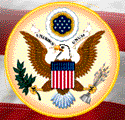 [Presidential Decision Directives - PDD]
[Presidential Decision Directives - PDD]
TEXT NOT AVAILABLE
THE WHITE HOUSE
Office of the Press Secretary
For Immediate Release July 3, 1993
Background Information:
U.S. Policy on Nuclear Testing and a
Comprehensive Test Ban
The President announced in his weekly radio address today that
his Administration had completed its review of U.S. policy on
nuclear testing and a Comprehensive Test Ban (CTB).
Last year, Congress passed the Hatfield-Exon-Mitchell Amendment
that directed that a CTB be negotiated by 1996. To allow time to
review whether further tests were needed, the Amendment also
established an interim moratorium on nuclear testing through July
1, 1993. The Amendment provides that between 1993 and 1996, the
United States could carry out up to twelve tests to improve the
safety and confirm the reliability of U.S. nuclear weapons.
Three other tests could be conducted in cooperation with the
United Kingdom.
During the campaign, the President underscored his commitment to
achieving a CTB, a commitment that he reaffirmed with President
Yeltsin at the Vancouver summit. On April 23, President Clinton
announced that we would be starting a consultative process with
Russia, our allies and other states, aimed at commencing CTB
negotiations at an early date.
After a thorough review, the Administration determined that the
nuclear weapons in the United States arsenal are safe and
reliable. Additional nuclear tests could help us prepare for a
CTB and provide some additional improvements in safety and
reliability. However, the President determined that these
benefits would be outweighed by the price we would pay in
conducting those tests now -- through undercutting of our
nonproliferation goals.
The President has therefore decided to extend the current
moratorium on U.S. nuclear testing at least through September of
next year as long as no other nation tests. He has called on the
other nuclear powers to do the same. The President believes that
if these nations join the United States in observing this
moratorium, we will be in the strongest possible position to
negotiate a CTB treaty.
The President will decide next year whether to extend this "no
first test" policy beyond September 1994. His decision will
depend on a number of factors, including the status of the CTB
negotiations and the willingness of the other nuclear powers to
show reciprocal restraint in foregoing their own testing plans.
If, however, this moratorium is broken by another state, the
President stated that he would direct the Department of Energy
(DOE) to prepare to conduct additional tests while he seeks
approval by Congress to test pursuant to the Hatfield-Exon-
Mitchell Amendment. He has, therefore, directed DOE to maintain
a capability to resume testing.
To assure our nuclear deterrent remains unquestioned under a CTB,
the President has also directed DOE to explore other means of
maintaining our confidence in the safety, reliability and
performance of our nuclear weapons and to refocus much of the
talent and resources of our nation's nuclear laboratories on new
technologies to curb the spread of nuclear weapons and verify
arms control treaties.
###